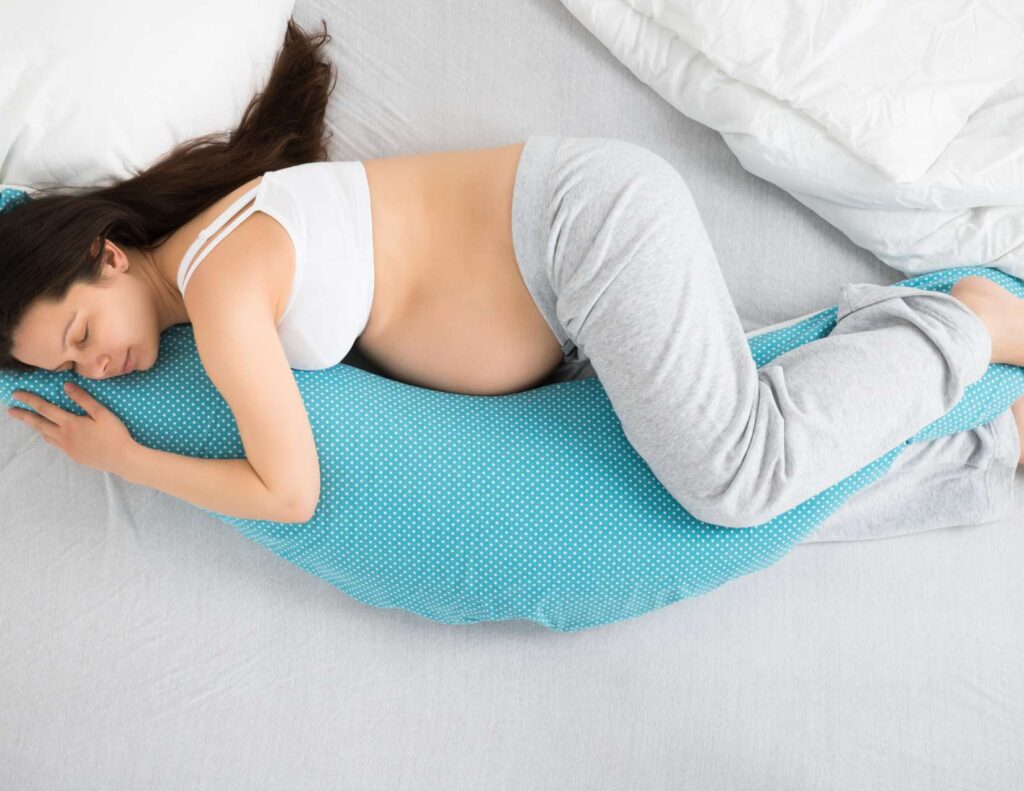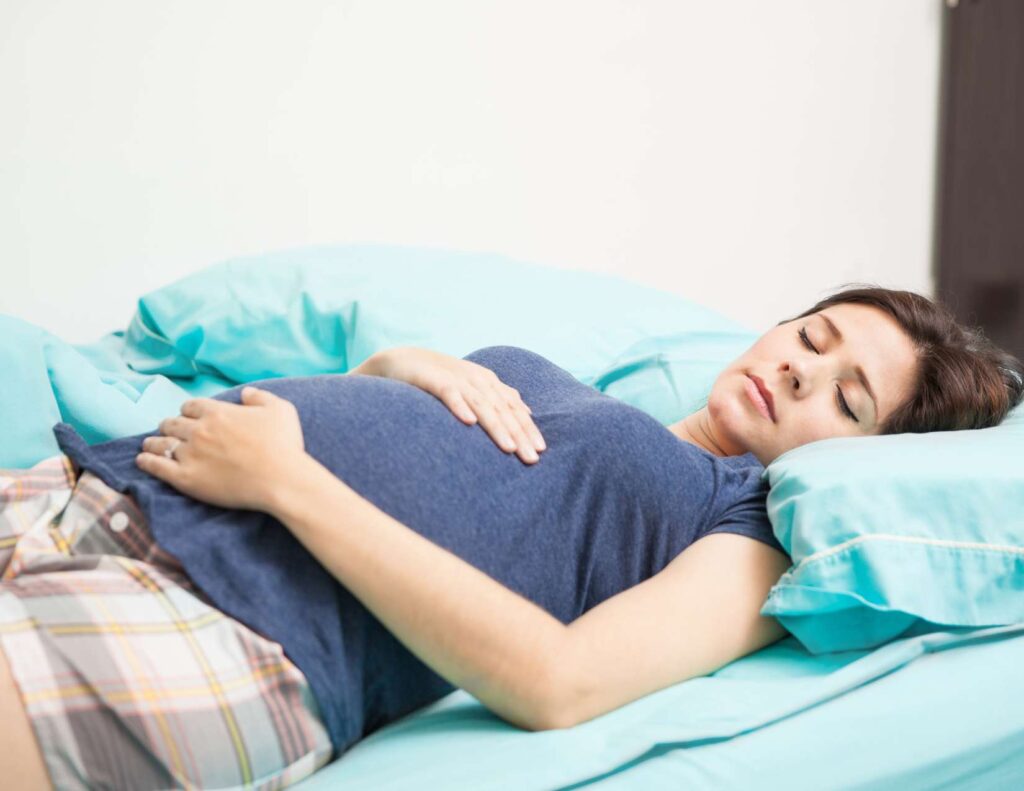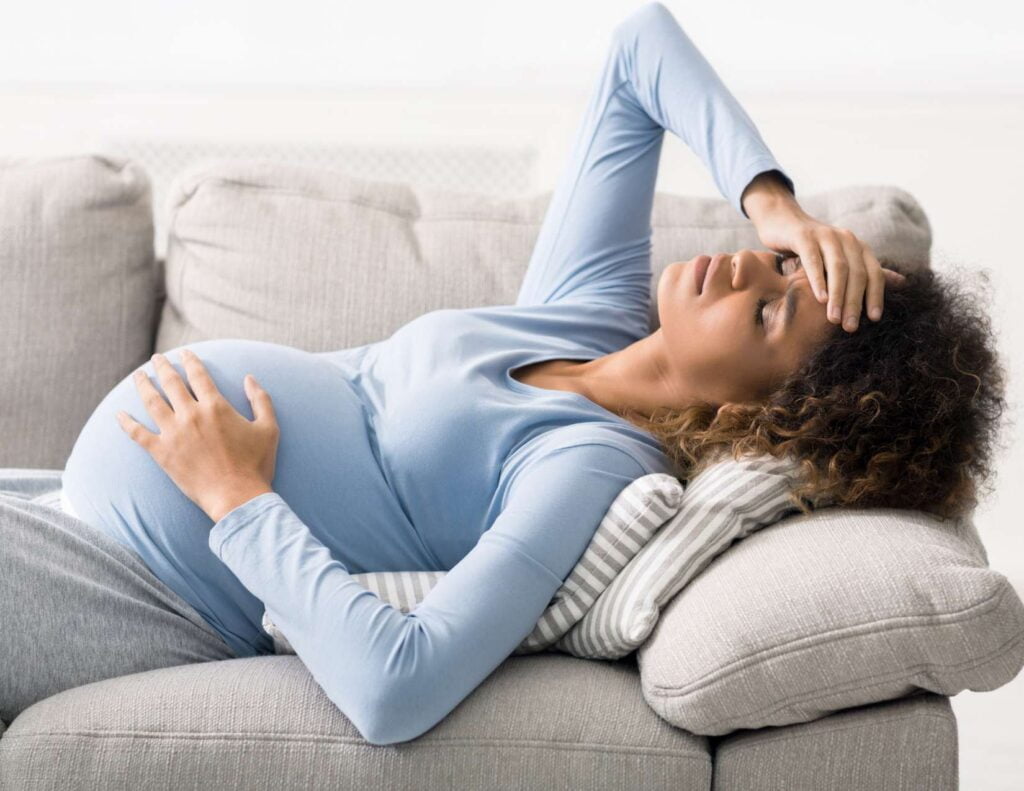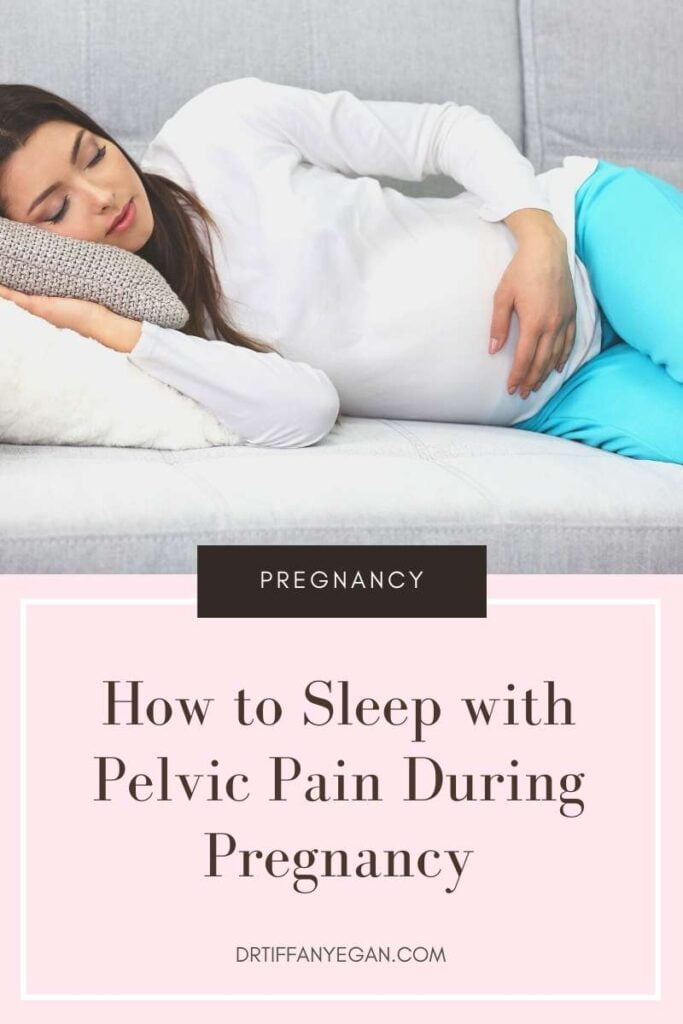How to Sleep with Pelvic Pain During Pregnancy
Being pregnant is an incredible experience, but it can also come with a lot of discomforts, including pelvic pain. Pelvic pain during pregnancy is common and can range from mild discomfort to severe pain. It can make sleeping difficult and affect your overall quality of life. In this article, I’ll cover everything you need to know about how to sleep with pelvic pain during pregnancy, including the importance of proper sleeping positions, pillows and other aids, lifestyle changes, alternative remedies, and when to seek medical attention.

Table of Contents
Understanding Pelvic Pain During Pregnancy
Pelvic pain during pregnancy is caused by several factors, including hormonal changes, weight gain, and pressure on the pelvic area. The pain can be felt in the lower abdomen, groin, hips, or thighs. It can make it hard to walk, sit, or stand for long periods. It can also make it difficult to sleep, as you may have trouble finding a comfortable position.
There are several types of pelvic pain during pregnancy, including:
- Round Ligament Pain: This is a sharp pain that occurs on one or both sides of the lower abdomen. It’s caused by the stretching of the round ligaments that support the uterus.
- Symphysis Pubis Dysfunction (SPD)/Pelvic Girdle Pain (PGP): This is a condition where the ligaments that hold the pubic bone together become too relaxed and stretchy. It can cause pain in the pelvic area, groin, or thighs.
- Sciatica During Pregnancy: This is a pain that radiates from the lower back down to the legs. It’s caused by pressure on the sciatic nerve, which runs from the lower back to the legs.
It’s essential to talk to your healthcare provider about any pelvic pain you experience during pregnancy. They can help diagnose the cause of your pain and recommend treatments to relieve it.
Why is SPD worse at night?
It’s not uncommon for moms to experience greater discomfort at night due to the increased pressure on the pubic symphysis throughout the day from daily activities such as walking, standing, and sitting. Inflammation within the joints builds up throughout the day and tends to be more symptomatic in the evenings and night. Additionally, changes in position throughout the night can cause pain or further aggravation of existing pain.

Are you experiencing pelvic pain when rolling over in bed pregnant?
It is possible that this pain can be caused by the growing baby and expanding uterus. You may feel a sharp, burning pain in the pelvic area when you move around in bed. It is also possible that this could be caused by round ligament pain, or sciatica. It is important to see your healthcare provider if you are feeling any kind of discomfort during pregnancy. They will be able to diagnose and treat the pain accordingly.
Positions to Relieve Pelvic Pain During Pregnancy
Getting enough sleep during pregnancy is crucial for both you and your baby’s health. However, finding a comfortable sleeping position can be challenging, especially if you’re experiencing pelvic pain. Sleeping on your back or stomach is not recommended during pregnancy, as it can put pressure on your spine and organs.
The best sleeping positions for pelvic pain relief during pregnancy are:
- Side Sleeping: Sleeping on your side, particularly your left side, is the best position to sleep with pelvic pain during pregnancy. It improves blood flow to the uterus, kidneys, and fetus. It also helps relieve pressure on the pelvic area.
- Bent-Knee Side Sleeping: This position involves sleeping on your side with your knees bent and a pillow between your legs. It helps align your hips and reduces pressure on the pelvic area.
- Semi-Reclined Position: If you have severe pelvic pain, sleeping in a semi-reclined position may be more comfortable. This involves propping yourself up with pillows to elevate your upper body.

Pillows and Other Aids for Sleeping with Pelvic Pain
Using pillows and other aids can make sleeping with pelvic pain during pregnancy more comfortable. Here are some aids that can help:
- Pregnancy Pillow: A pregnancy pillow is a long, curved pillow that supports your entire body. It can help align your hips and reduce pressure on the pelvic area.
- Body Pillow: A body pillow is a long pillow that you can hug and wrap your legs around. It helps align your hips and reduce pressure on the pelvic area.
- Maternity Belt: A maternity belt supports your belly and helps relieve pressure on your pelvic area.
Using these aids can make a big difference in your comfort level while sleeping. Experiment with different types of pillows and aids to find what works best for you.
Lifestyle Changes to Reduce Pelvic Pain
Making some lifestyle changes can also help reduce pelvic pain during pregnancy. Here are some tips on how to sleep with pelvic pain during pregnancy:
- Exercise: Gentle exercise, such as walking or swimming, can help strengthen your muscles and reduce pelvic pain. Talk to your healthcare provider before starting any exercise program.
- Avoid Strenuous Activities: Avoid activities that require a lot of bending, lifting, or twisting, as they can aggravate pelvic pain.
- Wear Supportive Shoes: Wearing supportive shoes can help reduce pelvic pain by improving your posture and reducing pressure on your feet and legs.
- Use Heat or Cold Therapy: Applying heat or cold therapy to the pelvic area can help relieve pain and inflammation. Use a heating pad or ice pack for 20 minutes at a time.
Making these lifestyle changes can help reduce pelvic pain during pregnancy and improve your overall quality of life.

Alternative Remedies for Pelvic Pain Relief
There are several alternative remedies that can help relieve pelvic pain during pregnancy. Here are some to consider:
- Acupuncture: Acupuncture involves the insertion of thin needles into specific points on the body. Acupuncture treatment can help relieve pain and improve overall well-being.
- Chiropractic Care: Chiropractic care during pregnancy involves the manipulation of the spine to improve alignment and reduce pain.
- Massage Therapy: Massage treatments, such as pressure point therapy can help relax muscles and reduce tension in the pelvic area.
- Yoga: Practicing prenatal yoga can help strengthen your muscles and improve flexibility. It can also help reduce stress and improve overall well-being.
Before trying any alternative remedies, talk to your healthcare provider to ensure they’re safe for you and your baby.
Tips for Better Sleep During Pregnancy
Getting enough sleep during pregnancy is essential for your health and your baby’s health. Here are some tips for how to sleep with pelvic pain during pregnancy:
- Stick to a Sleep Schedule: Try to go to bed and wake up at the same time every day.
- Create a Relaxing Sleep Environment: Make sure your bedroom is dark, quiet, and cool. Use comfortable bedding and pillows.
- Avoid Caffeine and Alcohol: Caffeine and alcohol can interfere with sleep. Avoid them in the evening.
- Limit Fluid Intake: Drinking too much fluid before bedtime can lead to frequent trips to the bathroom.
- Practice Relaxation Techniques: Relaxation techniques, such as deep breathing or meditation during pregnancy, can help calm your mind and body before bedtime.
Practicing these tips can help improve your sleep quality during pregnancy.

When to Seek Medical Attention for Pelvic Pain
While pelvic pain during pregnancy is common, it’s essential to know when to seek medical attention. Contact your healthcare provider if you experience any of the following:
- Severe or Persistent Pain: If your pelvic pain is severe or doesn’t go away with rest, contact your healthcare provider.
- Vaginal Bleeding: If you experience any vaginal bleeding, contact your healthcare provider immediately.
- Fever or Chills: If you have a fever or chills along with pelvic pain, contact your healthcare provider.
- Difficulty Walking or Standing: If you have difficulty walking or standing due to pelvic pain, contact your healthcare provider.
- Bowel and/or Bladder Changes: If you notice any changes in going to the bathroom, seek help immediately.
Don’t hesitate to contact your healthcare provider if you have any concerns about pelvic pain during pregnancy.
Coping with Pelvic Pain During the Day
Pelvic pain during pregnancy can also make it challenging to cope during the day. Here are some tips:
- Use a Supportive Chair: Using a supportive chair can help reduce pressure on the pelvic area while sitting.
- Take Frequent Breaks: Take frequent breaks to walk around and stretch your muscles.
- Use Supportive Shoes: Wearing supportive shoes can help reduce pelvic pain while standing or walking.
- Avoid Heavy Lifting: Avoid lifting heavy objects, as it can aggravate pelvic pain.
Making these small changes during the day can help reduce pelvic pain and improve your overall comfort level.
Conclusion
Pelvic pain during pregnancy is common, but it doesn’t have to interfere with your sleep or daily activities. Understanding the causes of pelvic pain, using proper sleeping positions, using pillows and other aids, making lifestyle changes, trying alternative remedies like chiropractic, and seeking medical attention when necessary can all help reduce pelvic pain. Remember to talk to your healthcare provider before trying any new remedies or making any significant lifestyle changes. With the proper care and attention, you now know how to sleep with pelvic pain during pregnancy. Sleep well!







